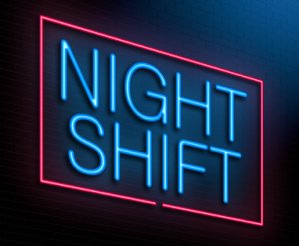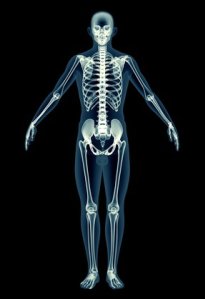Night work officially listed as cancer risk
The International Agency for Research on Cancer sees overnight work as part of the explanation to why some people are at greater risk of breast and prostate cancer.
 An estimated 20 per cent of the working population in developed countries is potentially at increased risk for contracting breast or prostate cancer. Experts point to nightshift work as a key to understanding the problem and the International Agency for Research on Cancer, the cancer arm of the World Health Organisation, has officially decided to list overnight work as a probable carcinogen for the same reason.
An estimated 20 per cent of the working population in developed countries is potentially at increased risk for contracting breast or prostate cancer. Experts point to nightshift work as a key to understanding the problem and the International Agency for Research on Cancer, the cancer arm of the World Health Organisation, has officially decided to list overnight work as a probable carcinogen for the same reason.
While there is still an ongoing debate about overnight work and its possible influence on cancer, several studies, some of which are conducted by Danish cancer researchers, have clearly shown an increased risk for breast cancer in women who do their breadwinning after sunset.
Read more …Night work officially listed as cancer risk
- Created on .



 Exposure to artificial light at night, experts explain, suppresses the body’s natural secretion of melatonin, a hormone which controls the circadian rhythm, and this is believed to be what causes the problem According to Johnni Hansen of the Danish Cancer Society, disrupting the body’s melatonin production leads to an increased estrogen release in the ovaries, which may contribute to an increased breast cancer risk. At the same time, melatonin is a powerful antioxidant, which in lab tests has been shown to inhibit certain cancer forms, such as breast cancer, cancer of the uterus and lung cancer.
Exposure to artificial light at night, experts explain, suppresses the body’s natural secretion of melatonin, a hormone which controls the circadian rhythm, and this is believed to be what causes the problem According to Johnni Hansen of the Danish Cancer Society, disrupting the body’s melatonin production leads to an increased estrogen release in the ovaries, which may contribute to an increased breast cancer risk. At the same time, melatonin is a powerful antioxidant, which in lab tests has been shown to inhibit certain cancer forms, such as breast cancer, cancer of the uterus and lung cancer. It is a real bother to have trouble falling asleep. It only gets worse if you also suffer from asthma. But according to a scientific study published in the November 2004-issue of American Journal of Respiratory and Critical Care Medicine, it helps to supplement with a natural substance called melatonin. In a study of 22 women with mild to moderate asthma, those who were given three milligrams of melatonin two hours before their bedtime experienced significant improvements in quality of sleep compared with those who got inactive placebo. The patients in the melatonin group fell asleep faster and slept longer, the scientists write, adding that the melatonin supplement did not have any effect on the asthma symptoms.
It is a real bother to have trouble falling asleep. It only gets worse if you also suffer from asthma. But according to a scientific study published in the November 2004-issue of American Journal of Respiratory and Critical Care Medicine, it helps to supplement with a natural substance called melatonin. In a study of 22 women with mild to moderate asthma, those who were given three milligrams of melatonin two hours before their bedtime experienced significant improvements in quality of sleep compared with those who got inactive placebo. The patients in the melatonin group fell asleep faster and slept longer, the scientists write, adding that the melatonin supplement did not have any effect on the asthma symptoms. Old rats receiving supplements of melatonin have stronger bones, a new study shows. This confirms previous studies that have shown this hormone to have a positive effect on bone mass. Other studies also suggest that the optimal melatonin dosage for sleep problems is not necessarily high.
Old rats receiving supplements of melatonin have stronger bones, a new study shows. This confirms previous studies that have shown this hormone to have a positive effect on bone mass. Other studies also suggest that the optimal melatonin dosage for sleep problems is not necessarily high. In a study of 20 nineteen-month-old mice, half of whom were fed melatonin, the average life span of the melatonin-fed mice increased by a stunning 20 per cent compared with those mice who did not receive the invigorating nutrient. The researchers also noticed how those mice who were given melatonin did not demonstrate the typical signs of ageing. In other words, these mice did not lose weight, slow down their pace, or sit in the characteristic humped posture that is typical of ageing mice. Also, they did not develop dry patchy fur but remained glossy and plump.
In a study of 20 nineteen-month-old mice, half of whom were fed melatonin, the average life span of the melatonin-fed mice increased by a stunning 20 per cent compared with those mice who did not receive the invigorating nutrient. The researchers also noticed how those mice who were given melatonin did not demonstrate the typical signs of ageing. In other words, these mice did not lose weight, slow down their pace, or sit in the characteristic humped posture that is typical of ageing mice. Also, they did not develop dry patchy fur but remained glossy and plump. Research has shown that rodents receiving supplements of melatonin limit their fat accumulation and thus obesity independently of their food intake and activity level. This suggests that melatonin helps to convert calories from the food to heat rather than fat. That it also might work in humans is supported by the previous observation that melatonin supplementation has been shown to benefit metabolism in people with diabetes and high blood levels of triglycerides (fat) in the blood.
Research has shown that rodents receiving supplements of melatonin limit their fat accumulation and thus obesity independently of their food intake and activity level. This suggests that melatonin helps to convert calories from the food to heat rather than fat. That it also might work in humans is supported by the previous observation that melatonin supplementation has been shown to benefit metabolism in people with diabetes and high blood levels of triglycerides (fat) in the blood.